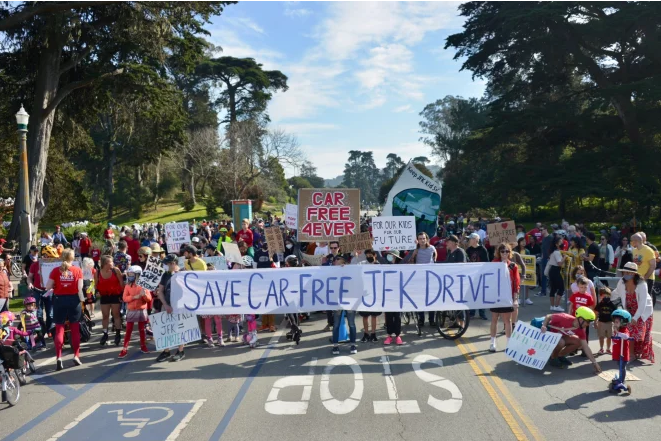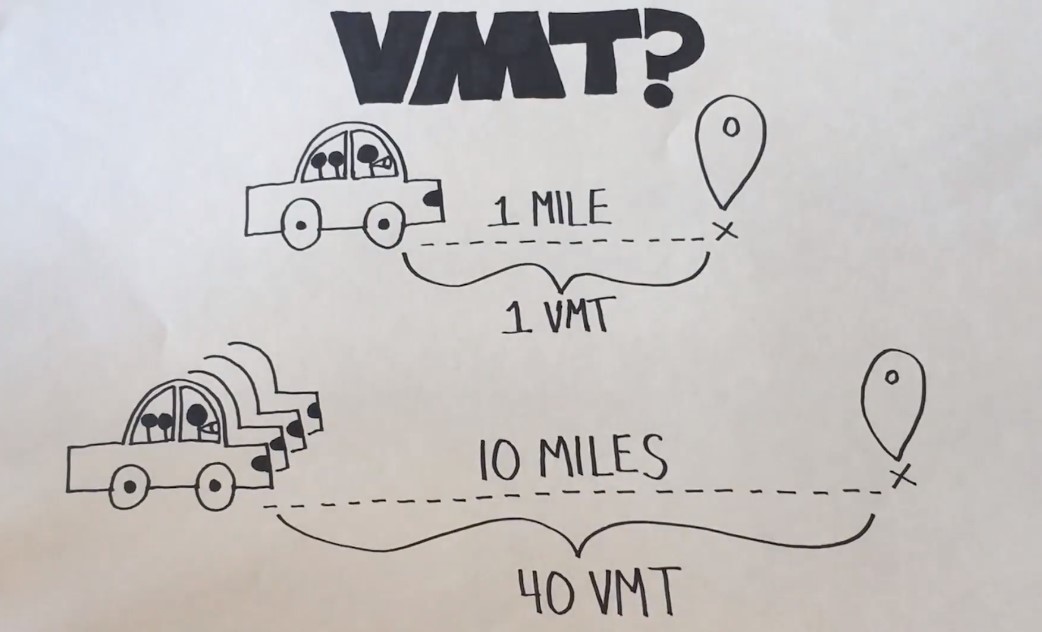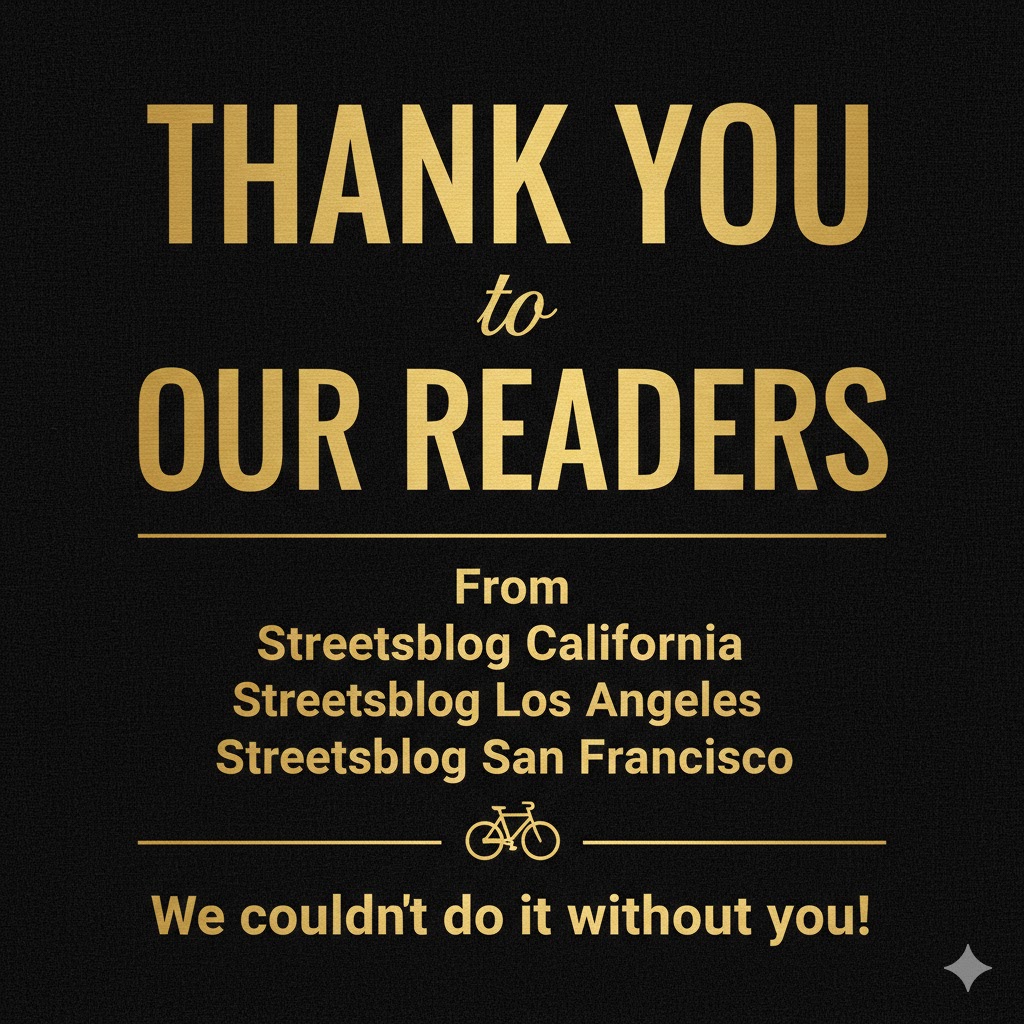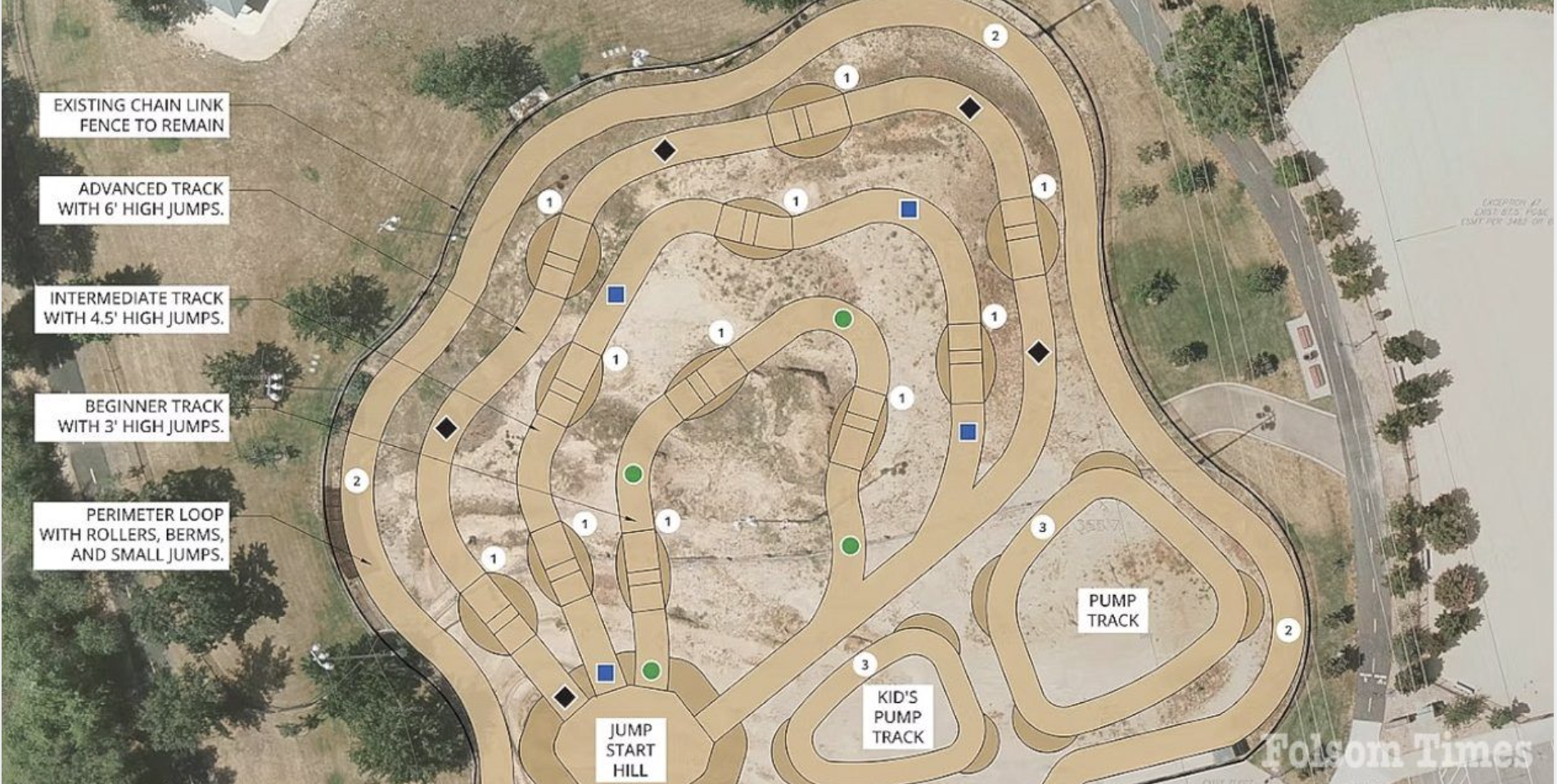Editor's note: Even as Rec and Park repaints the JFK Promenade (see embedded tweet below), efforts to turn it back into a dangerous thruway continues. Dow Chemical heiress Dede Wilsey funded a ballot measure to return cut-through traffic to the J.F.K. Promenade, which will appear on the Nov. ballot.
Safe-streets advocacy groups, including Walk San Francisco, the San Francisco Bicycle Coalition, Safe Parks for All, and Livable City, are working hard to raise awareness and help preserve a safe promenade in Golden Gate Park. As part of that effort, Livable City's Tom Radulovich wrote the following op-ed.
For over two years San Franciscans have enjoyed JFK Promenade as 24-hours-a-day, seven-days-a-week public commons through Golden Gate Park. Reclaiming our City’s largest park for recreation and the enjoyment of nature was a wise choice for our mental and physical health, and for the health of our living planet. This free, accessible, car-free space is easily San Francisco’s most popular public recreation program of the past two years, and possibly ever.
JFK Drive is now a safer place, transformed from one of San Francisco’s more dangerous streets to one where San Franciscans of all ages, abilities, and backgrounds can freely recreate and socialize.
And we need more restorative places. City life is stressful. More of us are suffering from anxiety, isolation, and depression. We have let auto traffic dominate the public spaces of our neighborhoods – our parks and streets –at the expense of our health, our safety, our environment, and the social and familial bonds of community.
The burdens imposed by automobile dependence, from air pollution and noise to traffic danger and lack of street trees, fall disproportionately on low-income communities and people of color, both in the Bay Area and across the US. Better mobility – safe and comfortable walking and cycling, and access to quality public transportation – are also unequally distributed.
The best way forward is to level up – we need more opportunities for exercise and play, more restorative and sociable public places in every community, and more and better ways to get to them. Despite some progress we’re still a City where opportunities for safe recreation and the enjoyment of nature are too scarce and inequitably provided.
Today, we began grinding away the old roadway markings on JFK Promenade to make it an even more welcoming space for visitors. The final product will include vibrant decorative paint celebrating Golden Gate Park! Check back for progress photos over the next few weeks! pic.twitter.com/YV9L47GnO5
— San Francisco Recreation and Park Department (@RecParkSF) August 29, 2022
Leveling up is a value that informs all that Livable City does, from our Sunday Street program, which creates car-free space for recreation and community in places that need it, to advocating for transit equity, to investing in safer and greener streets in the neighborhoods that most need them.
That’s why we supported the Golden Gate Park Access and Safety Program, adopted by the Board of Supervisors in April. It made the mostly car-free recreational route down the length of the park permanent. It also improved the Park Shuttle program, expanded and upgraded parking spots for people with disabilities all over the park, created more convenient pick-up and drop-off locations, added more diverse programming in the park, and improved traffic circulation on routes around and through the park. We support keeping these car-free public spaces in the park, and the steps taken to improve access for all to and through the park. And it’s also just a beginning – a lot more can be done to expand transportation options.
Sadly progress often comes with a backlash. On the November ballot we’ll be faced with a stark choice – a measure that would roll back the car-free route through the park and cement automobile domination of the park’s public spaces, or a pair of measures which affirm our progress and improve access and mobility options for park users.
Measure I would take us backwards. It would prohibit regular car-free space on JFK and other park roads, except for limited hours on weekends, and also prohibit the weekend recreation on Great Highway we currently enjoy. It would even require the city to keep the eroding southernmost section of Great Highway, which the City decided to remove to protect our sewage treatment plant, open to cars. Doing so will cost $80 million or more, and damage Ocean Beach.
Two other measures will ground our progress and take us forward. Measure J will reaffirm the City’s commitment to the existing car-free space, and to completing the access and safety program. Measure N will reclaim the Concourse parking garage from a private authority, and allow it to be managed for more equitable access to the park and the park’s museums.
Vote 'Yes' on Measures J and N, and 'No' on I.
***
Tom Radulovich is Executive Director of Livable City.






